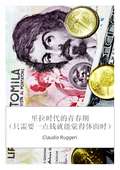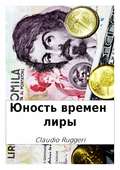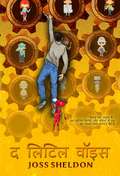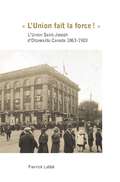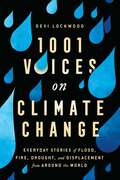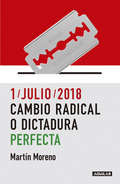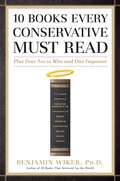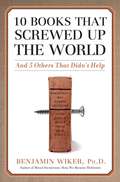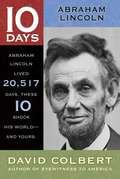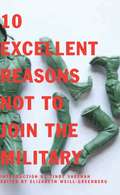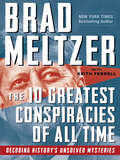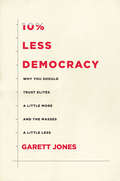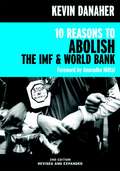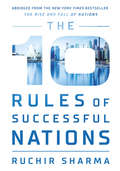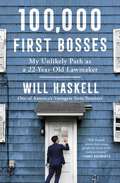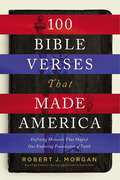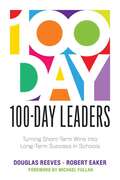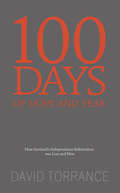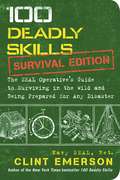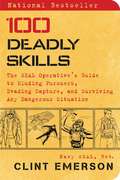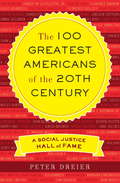- Table View
- List View
里拉时代的青春期(只需要一点钱就能觉得体面时)
by Ilaria Conversano Claudio Ruggeri我写这本书的目的并非为了仅仅从经济层面比较我们的旧货币与现在的货币之间相对的优点与缺点 而是为了停下来好好观察那个里拉成功运转但又很快被废除和遗忘的世界
リラ世代の青年期 (少ない物で王様気分になれたとき)
by Claudio Ruggeri Annalisa Di Martino夏の午後に出逢った二人の友達,若者は "リラを持っていない..." と言うフレーズをよく使っていた,今からそう遠くないが,既に存在しない時代に住んだ者の物語を聞く
Юность Времен Лиры
by Imran Nazirov Claudio RuggeriВстреча двух друзей в один из летних дней, в которой более молодой будет слушать анекдоты и рассказы другого о мире, который исчез всего лишь вчера, но больше уже никогда не сможет существовать, во времена которого часто можно было услышать фразу «Я без единой лиры...»
द लिटिल वॉइस: A Rebellious Novel
by Joss Sheldon Aayushi Sharmaप्रिय पाठक, मेरे चरित्र को दो विरोधी ताकतों द्वारा आकार दिया गया है; सामाजिक मानदंडों के अनुरूप ढलने का दबाव, और खुद के साथ ईमानदार रहने का दबाव। सच कहूं तो, इन ताकतों ने वाकई में मुझे खींच-खाच के तोड़ कर रख दिया है। उन्होंने मुझे एक तरफ़ खींचा और फिर दूसरी तरफ़। कई बार, उन्होंने मुझे अपने सम्पूर्ण अस्तित्व पर ही सवाल उठाने पर मजबूर कर दिया। लेकिन कृपया यह बिलकुल न सोचे की मैं गुस्सा या उदास हूँ। मैं नहीं हूँ। क्योंकि विपत्ति के माध्यम से ज्ञान आता है। मैंने काफ़ी कुछ झेला है, यह सच है। लेकिन मैंने अपने दर्द से सीखा है। मैं एक बेहतर इंसान बन गया हूँ। अब, पहली बार, मैं अपनी कहानी बताने के लिए तैयार हूँ। शायद यह आपको प्रेरणा प्रदान करे। शायद यह आपको पूर्णतः एक नए तरीके से सोचने के लिए प्रोत्साहित करे। शायद यह ऐसा न करे। यह पता लगाने का बस एक ही तरीका है... किताब का आनंद लें, य
А House on Presnya
by Elena Chernikova Nina ŠoltićFive autobiographical stories and a novel-allusion about love and posthumous life; written by a woman, in Russia, about the domestic male material.
« L’Union fait la force! »: L’Union Saint-Joseph d’Ottawa/du Canada 1863-1920 (Amérique française)
by Pierrick LabbéEn 1863, un groupe de travailleurs originaires du Québec et domiciliés à Ottawa décident de fonder une association de prévoyance pour aider leurs prochains dans le besoin. En s’inspirant de leurs expériences respectives au sein d’associations de prévoyance québécoises, les fondateurs établissent une première société de secours mutuels canadienne-française à Ottawa : l’Union Saint-Joseph d’Ottawa. Malgré une naissance et des débuts modestes, cette association connaîtra une grande histoire. Elle deviendra l’une des plus grandes sociétés fraternelles nationales, avec des ramifications dans plus de 600 communautés canadiennes-françaises du Canada et des États-Unis. Cet ouvrage analyse la fondation de l’Union Saint-Joseph d’Ottawa et son évolution entre 1863 et 1920. Durant cette période, cette petite association locale, dont les activités visent essentiellement le secours de la classe populaire, évolue pour devenir une grande société fraternelle nationale vouée à la sauvegarde des intérêts des Canadiens français. L’essentiel de ces mutations survient à la fin du XIXe siècle, alors qu’une petite élite entreprend des réformes administratives qui changent la manière de gérer la mutualité. Cette élite en profite également pour reformuler le projet social de l’association et ses objectifs afin de transformer l’Union Saint-Joseph en un instrument de lutte pour la survivance canadienne-française. Publié en français
1,001 Voices on Climate Change: Everyday Stories of Flood, Fire, Drought, and Displacement from Around the World
by Devi LockwoodJoin journalist Devi Lockwood as she bikes around the world collecting personal stories about how flood, fire, drought, and rising seas are changing communities. It&’s official: 2020 will be remembered as the year when apocalyptic climate predictions finally came true. Catastrophic wildfires, relentless hurricanes, melting permafrost, and coastal flooding have given us a taste of what some communities have already been living with for far too long. Yet we don&’t often hear the voices of the people most affected. Journalist Devi Lockwood set out to change that. In 1,001 Voices on Climate Change, Lockwood travels the world, often by bicycle, collecting first-person accounts of climate change. She frequently carried with her a simple cardboard sign reading, &“Tell me a story about climate change.&” Over five years, covering twenty countries across six continents, Lockwood hears from indigenous elders and youth in Fiji and Tuvalu about drought and disappearing coastlines, attends the UN climate conference in Morocco, and bikes the length of New Zealand and Australia, interviewing the people she meets about retreating glaciers, contaminated rivers, and wildfires. She rides through Thailand, Laos, and Cambodia to listen to marionette puppeteers and novice Buddhist monks. From Denmark and Sweden to China, Turkey, the Canadian Arctic, and the Peruvian Amazon, she finds that ordinary people sharing their stories does far more to advance understanding and empathy than even the most alarming statistics and studies. This book is a hopeful global listening tour for climate change, channeling the urgency of those who have already glimpsed the future to help us avoid the worst.
1/julio/2018. Cambio radical o dictadura perfecta
by Martín MorenoEl libro que los electores, votantes indecisos y mexicanos en general deben leer de cara a la elección presidencial. ¡Basta de conformismo! La decisión estará en nuestras manos: cambio radical o dictadura perfecta. Bajo las herramientas periodísticas necesarias para ofrecerle al lector el contexto de la próxima elección presidencial: alternativas, riesgos y escenarios, este libro está diseñado para que se tengan mayores y mejores elementos de información, análisis y reflexión, sobre los cuales casi 86 millones de mexicanos tomarán la gran decisión sexenal. Este trabajo de fondo revela y transparenta -con reporteo, cifras, estadísticas, entrevistas, testimonios, textos y gráficas-, asuntos que los periodistas están obligados a investigar y que los lectores, electores y votantes indecisos, deben conocer antes de sufragar: ¿Qué encuestas fallaron en 2012 y no son confiables? ¿Cuál será la estrategia de López Obrador el uno de julio? ¿A quién representa realmente José Antonio Meade? ¿Viene una derrota inevitable para el PRI? ¿Por qué no hay que descartar a Ricardo Anaya? ¿Cuál sería el programa de gobierno de Margarita Zavala? ¿Son confiables nuestras autoridades electorales? "El cambio es AMLO": Jorge Castañeda. "Meade es un candidato secuestrado": Alfonso Zárate. "Yo sí investigaré a Peña Nieto": Margarita Zavala. "El riesgo de que el PRI pierda la elección presidencial es alto": Eduardo Huchim. "Hay un ambiente de encono y de polarización, mayor que al de 2006": José Antonio Crespo. "Meade es candidato por necesidad política del PRI": Félix Fuentes. Es parte de lo que aporta este libro. Votar es nuestra obligación, no una opción. Y bajo esta premisa, Martín Moreno nos ofrece no una guía electoral, sino un trabajo profesional con rigor periodístico, para definir nuestro futuro: cambiamos o seguimos hundidos: ¡Cambio radical o dictadura perfecta!
10 Books Every Conservative Must Read: Plus Four Not to Miss and One Impostor
by Benjamin WikerFollowing up his 10 Books That Screwed Up the World, author Benjamin Wiker brings you 10 Books Every Conservative Must Read: Plus Four Not to Miss and One Impostor. Offering a guide to some of the most important literary works of our time, Wiker turns his discerning eye from the great texts that have done so much damage to Western Civilization to the great texts that could help rebuild it. 10 Books Every Conservative Must Read features a range of works from classics such as Democracy in America and The Federalist and Anti-Federalist Papers, to more "pop" classics like Sense and Sensibility and The Tempest. Through these works, Wiker reveals some of the most important lessons for our time as well as the true meaning of conservatism. Written with an educational purpose and witty tone, this is a must-read for conservatives, Republicans, and booklovers everywhere!
10 Books that Screwed Up the World: And 5 Others That Didn't Help
by Benjamin WikerYou've heard of the "Great Books"?These are their evil opposites. From Machiavelli's The Prince to Karl Marx's The Communist Manifesto to Alfred Kinsey's Sexual Behavior in the Human Male, these "influential" books have led to war, genocide, totalitarian oppression, family breakdown, and disastrous social experiments. And yet these authors' bad ideas are still popular and pervasive--in fact, they might influence your own thinking without your realizing it. Here with the antidote is Professor Benjamin Wiker. In his scintillating new book, 10 Books That Screwed Up the World (And 5 Others That Didn't Help), he seizes each of these evil books by its malignant heart and exposes it to the light of day. In this witty, learned, and provocative exposé, you'll learn:* Why Machiavelli's The Prince was the inspiration for a long list of tyrannies (Stalin had it on his nightstand)* How Descartes' Discourse on Method "proved" God's existence only by making Him a creation of our own ego* How Hobbes' Leviathan led to the belief that we have a "right" to whatever we want* Why Marx and Engels's Communist Manifesto could win the award for the most malicious book ever written* How Darwin's The Descent of Man proves he intended "survival of the fittest" to be applied to human society* How Nietzsche's Beyond Good and Evil issued the call for a world ruled solely by the "will to power"* How Hitler's Mein Kampf was a kind of "spiritualized Darwinism" that accounts for his genocidal anti-Semitism* How the pansexual paradise described in Margaret Mead's Coming of Age in Samoa turned out to be a creation of her own sexual confusions and aspirations* Why Alfred Kinsey's Sexual Behavior in the Human Male was simply autobiography masquerading as scienceWitty, shocking, and instructive, 10 Books That Screwed Up the World offers a quick education on the worst ideas in human history--and how we can avoid them in the future.
10 Days: Abraham Lincoln
by David ColbertYou're about to be an eyewitness to the ten crucial days in Abraham Lincoln's life, including: A tragic loss that sets a boy on a course for greatness. A career sacrificed to protest an unjust war. A state resorting to treason to preserve slavery. A president who learns the most difficult decisions are made alone. And a promise made to every citizen that American's salves will be free.
10 Excellent Reasons Not to Join the Military
by Elizabeth Weill-GreenbergSo you're walking out of school and parked at the gate is a new, bright red Ford Mustang with a hulk of a man in the front seat. He's sporting a razor cut and wraparound shades. Before you can pass he's out of the car and blocking your path. "Mind if I take a minute"--he has you by the arm now--"to tell you about the great life in today's Army and why you should seriously think about signing up?"The armed forces are having a tough time attracting new recruits lately, in no small part due to the mess in Iraq. Young people are getting wise to the many excellent reasons not to join the U.S. Military, and this handy book brings them all together, combining accessible writing with hard facts and devastating personal testimony. Contributors with firsthand experience point out the dangers facing soldiers, describe the tricks used by recruiters, and emphasize that there really are other options, even in a sluggish economy. It's essential reading for anyone thinking of signing up.
The 10 Greatest Conspiracies of All Time: Decoding History's Unsolved Mysteries
by Brad MeltzerMaster storyteller Brad Meltzer counts down and decodes the world’s top 10 most intriguing conspiracies stories. Wanted: the truth. In a riveting collection, Brad Meltzer guides us through the 10 greatest conspiracies of all time, from Leonardo da Vinci’s stolen prophecy to the Kennedy assassination. <P><P>This richly illustrated book serves up those fascinating, unexplained questions that nag at history buffs and conspiracy lovers: Why was Hitler so intent on capturing the Roman “Spear of Destiny?” Where did all the Confederacy’s gold go? What is the government hiding in Area 51? And did Lee Harvey Oswald really act alone? Meltzer sifts through the evidence, weighs competing theories, separates what we know to be true and what’s still––and perhaps forever––unproved or unprovable, and in the end, decodes the mystery and arrives at the most likely explanation.
10% Less Democracy: Why You Should Trust Elites a Little More and the Masses a Little Less
by Garett JonesDuring the 2016 presidential election, both Donald Trump and Bernie Sanders argued that elites were hurting the economy. But, drawing together evidence and theory from across economics, political science, and even finance, Garett Jones says otherwise. In 10% Less Democracy, he makes the case that the richest, most democratic nations would be better off if they slightly reduced accountability to the voting public, turning up the dial on elite influence. To do this, Jones builds on three foundational lines of evidence in areas where he has personal experience. First, as a former staffer in the U.S. Senate, he saw how senators voted differently as elections grew closer. Second, as a macroeconomist, Jones knows the merits of "independent" central banks, which sit apart from the political process and are controlled by powerful insiders. The consensus of the field is that this detached, technocratic approach has worked far better than more political and democratic banking systems. Third, his previous research on the effects of cognitive skills on political, social, and economic systems revealed many ways in which well-informed voters improve government. Discerning repeated patterns, Jones draws out practical suggestions for fine-tuning, focusing on the length of political terms, the independence of government agencies, the weight that voting systems give to the more-educated, and the value of listening more closely to a group of farsighted stakeholders with real skin in the game—a nation's sovereign bondholders. Accessible to political news junkies while firmly rooted and rigorous, 10% Less Democracy will fuel the national conversation about what optimal government looks like.
10 Reasons to Abolish the IMF & World Bank (Open Media Series)
by Kevin Danaher Anuradha MittalA veritable "Globalization for Dummies," 10 Reasons to Abolish the IMF & World Banklays bare the most common myths of globalization in a clear and understandable way. Looking with hope to grassroots movement-building on a global scale, Danaher presents ten arguments for abolishing the IMF and World Bank and replacing them with democratic institutions that would make the global economy more accountable to an informed and active citizenry. Conceived as an effort to educate the public about how international institutions of "free trade" are widening the gap between the rich and poor globally, Danaher reveals how the lending policies of the IMF and the World Bank fail to benefit Third World peoples, and instead line the pockets of undemocratic rulers and western corporations while threatening local democracies and forcing cuts to social programs.Through anecdotes, analysis, and innovative ideas, Danaher argues that the IMF and the World Bank undermine our most basic democratic values, and calls for reframing the terms on which international economic institutions are operated using the principles of environmental sustainability, social justice, and human rights.
The 10 Rules of Successful Nations
by Ruchir SharmaThe 10 Rules of Successful Nations offers a pithy guide to real-world economics, adapted from the New York Times bestseller The Rise and Fall of Nations. A wake-up call to economists who failed to foresee every recent crisis, including the cataclysm of 2008, The 10 Rules of Successful Nations is a slim primer full of pioneering insights on the political, economic, and social habits of successful nations. Distilled from Sharma’s quarter century traveling the world as a writer and investor, his rules challenge conventional textbook thinking on what matters—and what doesn’t—for a strong economy. He shows why successful nations embrace robots and immigrants, prefer democratic leaders to autocrats, elect charismatic reformers over technocrats, and pay no mind to the debate about big versus small government. He explains why rising stock prices matter as much or more than food prices, which measure of debt is the best predictor of economic crises, and why no one number can accurately capture the value of a currency. He also demonstrates how a close reading of the Forbes billionaire lists can offer the clearest real-time warning of populist revolts against the wealthy. Updated with brand-new data, 10 Rules reimagines economics as a practical art, giving general readers as well as political and business leaders a quick guide to the most important forces that shape a nation’s future.
100,000 First Bosses: My Unlikely Path as a 22-Year-Old Lawmaker
by Will HaskellThe underdog story of Will Haskell, who became a Democratic state Senator in 2018 at age twenty-two—taking on an incumbent who had been undefeated for Haskell&’s entire life and earning an endorsement from President Obama—and is determined to pave the way for his peers to transform government from the bottom up.President Obama left office with these parting words for Americans: &“If you&’re disappointed by your elected officials, grab a clipboard, get some signatures, and run for office yourself.&” Twenty-two-year-old Will Haskell decided to do just that. If he ran for office and won, he would become the youngest state Senator in Connecticut history. For years, Haskell&’s hometown had reelected the same politician who opposed passing paid family leave, fought increases in the minimum wage, and voted down expansions of voting rights. Haskell&’s own vision for Connecticut&’s future couldn&’t be more different, and he couldn&’t stand the idea of an uncontested election. In 2018, he would be a college grad looking for his first job. Why not state Senator? When Haskell kicks off his campaign in the spring of his senior year, he&’s an unknown college kid facing a popular incumbent who&’s been in office for over two decades—as long as Haskell&’s been alive. Haskell&’s campaign manager is his roommate and his treasurer is his girlfriend&’s mom. He doesn&’t have any professional experience. But he does have a powerful message: there&’s no minimum age to being on the right side of history. Six months later, Haskell&’s shocking upset victory gives him a historic seat in the state Senate and the responsibility to serve the 100,000 constituents in his district. Like any first job, his first term as a legislator is filled with trial and error. Creating a program that funds free tuition at Connecticut&’s community colleges—nice work. Falling asleep on the senate floor—needs improvement. In the tradition of Pete Buttigieg&’s Shortest Way Home and Greta Thunberg&’s No One Is Too Small to Make a Difference, 100,000 First Bosses is the story of how one twentysomething candidate waged the campaign of his young life, fought for change at the state capitol, and proved that his generation is ready to claim a seat at the table.
100 American Flags: A Unique Collection of Old Glory Memorabilia
by Kit Hinrichs Delphine Hirasuna Terry HeffernanThe American flag has been raised high in wartime triumph and peacetime celebration; sewn lovingly onto quilts, caps, pillows, and bags; appropriated by popular culture; and faithfully honored every Fourth of July. This vibrant collection of 100 Stars and Stripes artifacts ranges from Civil War-era banners and Native American braided moccasins to an early 20th-century "friendship" kimono and original flag art by several of the world's leading designers. Destined to captivate folk-art aficionados, history buffs, and collectors, 100 AMERICAN FLAGS provides a stunning visual history of America's most treasured symbol. A timely, patriotic full-color book presenting 100 American flag artifacts from one of the world's most eminent collectors, designer Kit Hinrichs. Selected images from LONG MAY SHE WAVE in an affordable, collectible edition. Election year and wartime keepsake, displaying nonpartisan national pride. From the Hardcover edition.
The 100 Best Trends 2005: Emerging Developments You Can't Afford to Ignore!
by George Ochoa Melinda CoreyIf there's one thing that we know about the future, it's this: It has already begun. The changes that will shape our lives in the next ten to twenty years are already in motion-from demographic changes to new technology, and from social trends to novel ways of doing business. The pace of change can be overwhelming, and until now, there hasn't been an accessible reference guide that summarizes the most important trends in every industry.
100 Bible Verses That Made America: Defining Moments That Shaped Our Enduring Foundation of Faith
by Robert MorganThe Bible has played a starring role in American history from our nation&’s beginnings. When George Washington was sworn into office as our first president, he did not place his hand on the Declaration of Independence or the Constitution of the United States, as hallowed as those documents are. Instead, he swore upon and even kissed the Bible to sanctify this important moment. The Bible, Washington knew, had ushered American history to this point.Trying to explain American history without its Bible is like trying to understand the human body without its bloodstream. Had there been no Bible, there would be no America as we know it. It is the Bible that made America.While not every Founding Father was a Christian, a Bible-believer, or a paragon of virtue and not every leader has honored the Bible nor appreciated its influence, there is an undeniable history of leaders who&’ve been intimately acquainted with the contents of the Bible, who&’ve studied its scriptures and respected its teachings. Journey with Robert J. Morgan as he teaches about the Bible&’s role in the defining moments and impact on the people of our nation&’s history, reminding us of the beauty at the intersection of faith and country and reigniting our hearts&’ passions for both.
100-Day Leaders: Turning Short-Term Wins Into Long-Term Success in Schools (A 100-Day Action Plan for Meaningful School Improvement)
by Douglas Reeves Robert EakerWithin 100 days, schools have dramatically increased student achievement, transformed faculty morale and school culture, reduced discipline issues, and much more. Begin leading focused, meaningful change in your own school with the support of 100-Day Leaders by Douglas Reeves and Robert Eaker. Using this book to guide your school improvement plan, you will learn how to achieve a series of short-term wins that combine to form long-term success.
100 Days of Hope and Fear: How Scotland's Referendum Was Lost And Won
by David TorranceWas it simply a victory for fear over hope?How did the Better Together campaign come so close to losing it?How did the Yes campaign come so close to winning it?What can the people of Scotland – and other aspirant nations – learn from this seismic democratic event? Scotland’s independence referendum on 18 September 2014 was the most significant ballot in Scotland’s history. The 100 days up to 18 September was the official campaign period and the world’s media was watching. David Torrance was there throughout, in front of the cameras, on the radio, in the newspapers, at the debates and gatherings, privy to some of the behind-the-scenes manoeuvrings.A passionate federalist at heart, described disparagingly by the outgoing First Minister as ‘Tory-leaning’, Torrance made a valiant attempt to remain ‘professionally neutral’ throughout. His commentary and analysis as the campaign went through its many twists and turns was always insightful, if not always popular.
100 Deadly Skills: The SEAL Operative's Guide to Surviving in the Wild and Being Prepared for Any Disaster (100 Deadly Skills)
by Clint EmersonFrom national bestselling author and retired Navy SEAL Clint Emerson comes the essential guide for surviving today's emergencies--from navigating in the wild to staying alive in any disaster.These 100 skills, adapted for civilians from actual field experiences of special forces operations, offer a complete hands-on and practical guide to help you survive in the wild no matter the climate or terrain; be prepared for any crisis; and have the critical life-saving knowledge for staying safe in any hostile environment or disaster. Yesterday's survival guide is no longer relevant. 100 Deadly Skills: Survival Edition is what you need for today's world, combining survival hacks developed on the battlefield with the low-tech tools you have on hand. This book is your essential prep manual, from securing shelter, building fire, finding food, and navigating back to civilization no matter the environment to thinking like a special forces solider so that you can survive a hostage situation, an active shooter, a suicide bomber, or a terrorist threat on the subway, and even apply trauma medicine as a first responder. Full of specific scenarios to help you get in the mindset of survival, 100 Deadly Skills: Survival Edition is better than a Swiss Army knife whether you're lost at sea, forced to land a plane, fighting off a bear, or deciding whether to run, hide, or fight. Next to each skill are easy-to-grasp detailed illustrations, because when you need to survive the apocalypse, you don't have time for complicated instructions.
100 Deadly Skills: The SEAL Operative's Guide to Eluding Pursuers, Evading Capture, and Surviving Any Dangerous Situation (100 Deadly Skills)
by Clint EmersonA hands-on, practical survival guide from retired Navy SEAL Clint Emerson--adapted for civilians from actual special forces operations--to eluding pursuers, evading capture, and surviving any dangerous situation.In today's increasingly dangerous world, threats to your personal safety are everywhere. From acts of terror to mass shootings, and from the unseen (and sometimes virtual) matrix of everyday crime, danger is no longer confined to dark alleys or unstable regions. Potentially life-threatening circumstances can arise anywhere, anytime, and Clint Emerson--former Navy SEAL--wants you to be prepared. 100 Deadly Skills contains proven self-defense skills, evasion tactics, and immobilizing maneuvers--modified from the world of black ops--to help you take action in numerous "worst case" scenarios from escaping a locked trunk, to making an improvised Taser, to tricking facial recognition software. With easy-to-understand instructions and illustrations, Emerson outlines in detail many life-saving strategies and teaches you how to think and act like a member of the special forces. This complete course in survival teaches you how to prevent tracking, evade a kidnapping, elude an active shooter, rappel down the side of a building, immobilize a bad guy, protect yourself against cyber-criminals, and much more--all using low-tech to "no-tech" methods. Clear, detailed, and presented in an easy-to-understand and execute format, 100 Deadly Skills is an invaluable resource. Because let's face it, when danger is imminent, you don't have time for complicated instructions.
The 100 Greatest Americans of the 20th Century: A Social Justice Hall of Fame
by Peter DreierA hundred years ago, any soapbox orator who called for womenOCOs suffrage, laws protecting the environment, an end to lynching, or a federal minimum wage was considered a utopian dreamer or a dangerous socialist. Now we take these ideas for granted? because the radical ideas of one generation are often the common sense of the next. We all stand on the shoulders of earlier generations of radicals and reformers who challenged the status quo of their day. Unfortunately, most Americans know little of this progressive history. It isnOCOt taught in most high schools. You canOCOt find it on the major television networks. In popular media, the most persistent interpreter of AmericaOCOs radical past is Glenn Beck, who teaches viewers a wildly inaccurate history of unions, civil rights, and the American Left. "The 100 Greatest Americans of the 20th Century," a colorful and witty history of the most influential progressive leaders of the twentieth century and beyond, is the perfect antidote.
